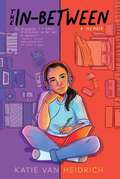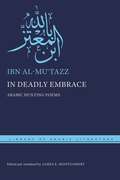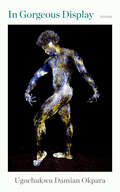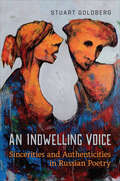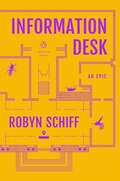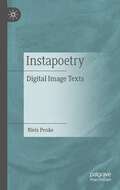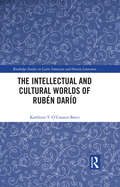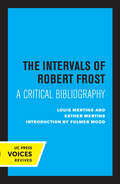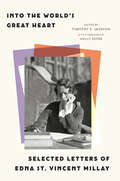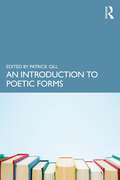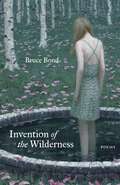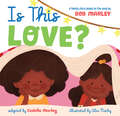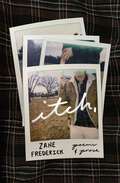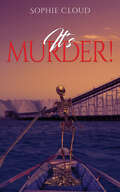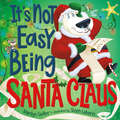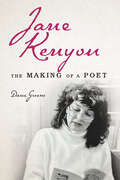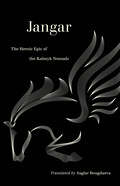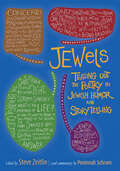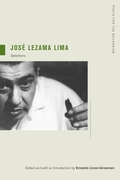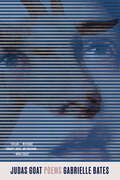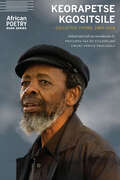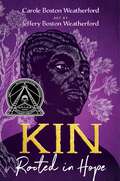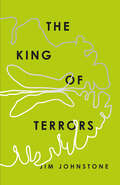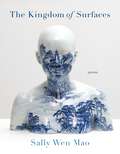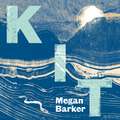- Table View
- List View
The In-Between
by Katie Van HeidrichFor fans of Enchanted Air by Margarita Engle and Life in Motion by Misty Copeland, this middle grade memoir in verse with &“stellar writing [and] perfect pacing&” (Kirkus Reviews, starred review) chronicles a young girl and her family who must start over after losing their home.In the early 2000s, thirteen-year-old Katie Van Heidrich has moved more times that she can count, for as long as she can remember. There were the slow moves where you see the whole thing coming. There were the fast ones where you grab what you can in seconds. When Katie and her family come back from an out-of-town funeral, they discover their landlord has unceremoniously evicted them, forcing them to pack lightly and move quickly. They make their way to an Extended Stay America Motel, with Katie&’s mother promising it&’s temporary. Within the four walls of their new home, Katie and her siblings, Josh and Haley, try to live a normal life—all while wondering if things would be easier living with their father. Lyrical and forthcoming, Katie navigates the complexities that come with living in-between: in between homes, parents, and childhood and young adulthood, all while remaining hopeful for the future.
In Deadly Embrace: Arabic Hunting Poems (Library of Arabic Literature #94)
by Ibn al-MuʿtazzA collection of poems about nature and powerTo Ibn al-Muʿtazz and his Abbasid contemporaries, the hunt was more than a diversion—it was the theater for their poetic and political endeavors, captured here in fifty-nine Arabic hunting poems, or ṭardiyyāt. The poems of In Deadly Embrace describe hunting expeditions with animals trained to hunt, including saluki hounds and birds of prey. Many were composed after these outings, when the hunting party gathered to enjoy the game they caught. Poetry was central to Abbasid society and served as a method of maintaining networks of patronage and friendship; the poems in this collection reflect these power dynamics and allowed Ibn al-Muʿtazz—prince of the realm and in line for the caliphate—to explore his own relationship to social and political power and to demonstrate his fitness to rule.Ibn al-Muʿtazz was an influential poet and literary theorist of the “Modernist” school of poetry. In Deadly Embrace merges the Modernists’ new techniques and styles with age-old themes: military prowess and wisdom, fitness to rule and comradeship, the camaraderie of the hunt and the cult of heroic masculinity. Groundbreaking and evocative, the poems paint vivid pictures of hunting scenes while posing deep questions about our attentiveness to the natural world and the relationship of the human to the nonhuman.
In Gorgeous Display
by Ugochukwu Damian OkparaThe remarkable debut collection by a young Nigerian queer poet.“here / i am not his image / & i envy it / i shut my eyes against what is left / the crackling softness of life / like communion / desire is a marathon / a baton waiting for your grip / here / i am not running / neither is he / i sit with a man for the first time / & we talk about war . . .”—FROM “BEAUTIFUL BOY WITH GARLANDS AROUND HIS WAIST”In Gorgeous Display, by Nigerian poet Ugochukwu Damian Okpara, is a volume dedicated to the memory of those lost to anti-queer violence in Nigeria and elsewhere. In this first full-length collection of his work, Okpara examines queer male identity, effeminacy, and exile, offering meditations on desire and sanctuary, freedom and estrangement. Forty-three poems pierce familial relationships, safety, fear, and anxiety portrayed through the outward sign of hand tremors, queer lynching, survival, hope, the emptiness of exile, and reclamation of the self. Embracing the ephemeral and spiritual nature of physical beauty, Okpara also reveals the scars of queer displacement, illuminating the ways that leaving home is never quite the utopia one hopes for and how often the ache of abandonment can haunt a life lived in the present.
An Indwelling Voice: Sincerities and Authenticities in Russian Poetry
by Stuart GoldbergHow have poets in recent centuries been able to inscribe recognizable and relatively sincere voices despite the wearing of poetic language and reader awareness of sincerity’s pitfalls? How are readers able to recognize sincerity at all given the mutability of sincere voices and the unavailability of inner worlds? What do disagreements about the sincerity of texts and authors tell us about competing conceptualizations of sincerity? And how has sincere expression in one particular, illustrative context – Russian poetry – both changed and remained constant? An Indwelling Voice grapples, uniquely, with such questions. In case studies ranging from the late neoclassical period to post-postmodernism, it explores how Russian poets have generated the pragmatic framings and poetic devices that allow them to inscribe sincere voices in their poetry. Engaging Anglo-American and European literature, as well as providing close readings of Russian poetry, An Indwelling Voice helps us understand how poets have at times generated a powerful sense of presence, intimating that they speak through the poem.
Information Desk: An Epic (Penguin Poets)
by Robyn SchiffA book-length poem set in the Metropolitan Museum of Art, from a writer whose work offers &“something few poets ever discover: a vision of the whole world&” (Dan Chiasson, The New Yorker)Robyn Schiff&’s fourth collection is an ambitious book-length poem in three parts set at The Metropolitan Museum of Art&’s information desk, where Schiff long ago held a staff position. Elaborately mapping an interconnected route in and out of the museum through history, material, and memory, Information Desk: An Epic takes us on an anguished soul-quest and ecstatic intellectual query to confront the violent forces that inform the museum&’s encyclopedic collection and the spiritual powers of art.Novelistic in its sweep, frantically informative, and deeply intimate in its private recollections, Information Desk: An Epic wayfares with riveting lyric intensity through an epic array of topics and concerns, including illusion, deception, self-deception, complicity, lecherous coworkers, the composition of pigment, the scattering of seeds, ideas, and capital, and insect infestations spreading within artwork. Along the way, Schiff pauses to invoke three terrifying muses—parasitic wasps—in desperate awe of their powers of precision and generative energy. Information Desk: An Epic undertakes a hemorrhaging ekphrastic journey through artifice and the natural world.
Instapoetry: Digital Image Texts
by Niels PenkeInstapoetry is one of the most popular literary phenomena of our time. In just a few years, millions of short to ultra-short texts have been published and shared on Instagram. In the battle for attention with countless other texts, the mechanisms of the platform and the usage routines of the users have to be served. The external pressure on literary production is immense. The book explains the production strategies and reception procedures of Instapoetry, explains its development and locates its significance - somewhere between the last stage of decay and the future of poetry.
The Intellectual and Cultural Worlds of Rubén Darío (Routledge Studies in Latin American and Iberian Literature)
by Kathleen T. O’Connor-BaterNicaraguan poet Rubén Darío (1867-1916) has had a foundational influence on virtually all Spanish language writers and poets of the twentieth century and beyond. Yet, while he is a household name among Hispano-phone readers, the seminal modernista remains virtually unknown to an English readership. This book examines the writings of Ruben Dario as both poet and chronicler, as he renovates language drawing lessons from ancient mythologies to embrace the ideal of "art for art’s sake"; all the while opposing United States aggression in the hemisphere along with the pseudo-Bohemian European bourgeoisie in poetry and prose at the cusp of the Great War.
The Intervals of Robert Frost: A Critical Bibliography
by Louis Mertins Esther MertinsThis title is part of UC Press's Voices Revived program, which commemorates University of California Press’s mission to seek out and cultivate the brightest minds and give them voice, reach, and impact. Drawing on a backlist dating to 1893, Voices Revived makes high-quality, peer-reviewed scholarship accessible once again using print-on-demand technology. This title was originally published in 1947.
Into the World’s Great Heart: Selected Letters of Edna St. Vincent Millay
by Edna St. MillayAn annotated selection of the letters of the Pulitzer Prize–winning poet and playwright Edna St. Vincent Millay, from childhood through the last year of her life Throughout her life, Edna St. Vincent Millay wrote hundreds of letters, which together create a colorful tapestry of her inner life. This selection, based on archival research, represents Millay&’s correspondence from 1900, when she was eight, until 1950, the last year of her life. Through her letters, readers encounter the vast range of Millay&’s interests, including world literature, music, and horse racing, as well as her commitment to gender equality and social justice. This collection, edited by Timothy F. Jackson, includes previously unpublished correspondence, as well as letters containing early versions of poems, revealing new dimensions in Millay&’s creative process and influences. It is enriched by Jackson&’s thoughtful introduction and notes, plus a foreword by Millay&’s literary executor, Holly Peppe. Millay&’s observations on her inner life and the world around her—which speak to contemporary concerns as well—add to our understanding of American literature in the first half of the twentieth century.
An Introduction to Poetic Forms
by Patrick GillAn Introduction to Poetic Forms offers specimen discussions of poems through the lens of form. While each of its chapters does provide a standard definition of the form in question in its opening paragraphs, their main objective is to provide readings of specific examples to illustrate how individual poets have deviated from or subverted those expectations usually associated with the form under discussion. While providing the most vital information on the most widely taught forms of poetry, then, this collection will very quickly demonstrate that counting syllables and naming rhyme schemes is not the be-all and end-all of poetic form. Instead, each chapter will contain cross-references to other literary forms and periods as well as make clear the importance of the respective form to the culture at large: be it the democratising communicative power of the ballad or the objectifying male gaze of the blazon and resistance to same in the contreblazon – the efficacy of form is explored in the fullness of its cultural dimensions. In using standard definitions only as a starting point and instead focusing on lively debates around the cultural impact of poetic form, the textbook helps students and instructors to see poetic forms not as a static and lifeless affair but as living, breathing testament to the ongoing evolution of cultural debates. In the final analysis, the book is interested in showing the complexities and contradictions inherent in the very nature of literary form itself: how each concrete example deviates from the standard template while at the same time employing it as a foil to generate meaning.
Invention of the Wilderness: Poems
by Bruce BondIn Invention of the Wilderness, Bruce Bond explores the wilderness as a spiritual, psychological, and ecological realm—a territory that, depending on our tolerances and affections, calls out for order, exploitation, expansion, or preservation. Although to talk of “inventing” the wilderness seems paradoxical, the book seeks to reclaim the etymological root of “invention” as a “venturing in.” To invent a wilderness is to go inward by way of attentive engagement in the natural world, to affirm and liberate imaginative expression as no mere mirror of nature, but a force of it. At times meditative and melancholic, though also vibrant and full of life, Invention of the Wilderness proposes an embodied and reflective way of being in the world.
Is This Love (Marley)
by Bob Marley Cedella MarleyRelive the magic of Bob Marley's most beloved songs in this newest picture book adaptation!Is this love?Is this love that I'm feeling?Bob Marley's music has captured the hearts and souls of families around the world. This sweet adaptation of one of his best loved songs is a heartwarming tale of an older child's love for a younger sibling.From the moment she sees her baby sister, big sister knows just what she's going to do: love her and treat her right, every day and every night. Playing together, watching over her, standing by her through thick and thin . . . big sister does it all, because yes, this is love that she's feeling.Adapted by Cedella Marley, Bob Marley's eldest child, and exuberantly illustrated by Alea Marley, Is This Love is a joyful ode to the unshakeable love shared by all those who call one another family.BOB MARLEY FANS: This new addition to the series based on the lyrics of famed reggae musician Bob Marley introduces his music and ideals to the youngest of readers, while inspiring nostalgia in older ones.GREAT READ ALOUD: The musical refrains make for fun and predictable read-alouds at story time and bedtime.SIBLING LOVE: Warm and lyrical, this book is a familiar ode to the unbreakable and enduring bond between sisters, making it a perfect gift to welcome a new family member or celebrate important milestones.SWEET MESSAGE FOR FAMILIES: Imaginative and vibrant, parents and caregivers will appreciate the endearing message of this picture book, recognizing that love comes in all forms and the importance of treasuring special times with family every day.Perfect for: Parents and grandparentsTeachers and librariansFans of Bob MarleyGift-givers looking for sweet picture books
Itch: Poems and Prose
by Zane Frederick"If you've ever been in love with longing, this is a must read." — Michaela Angemeer, author of you'll come back to yourself and when he leaves you In his third poetry collection, Itch, Zane Frederick scratches memory. He pokes the bear of his past. Ventures further out into its woods to see what still lurks and what needs to be settled. Itch captures the complexity of revisiting memory and the whirlwind of emotions that emerge from loose ends that have yet to be tied up. He shouts into the void and calls out the skeletons in his closet. He lets anger out like a beast locked away. He is stuck in a limbo between holding on and letting go, finding his way out of the forest that held his most rotted roots. Itch is about forgiving but never forgetting. It&’s about taking the armor off and going home. It challenges the notion that our scars won&’t always sting, but embraces the sting as a reminder of what we&’ve healed from.
It's Murder!
by Sophie CloudIt’s Murder! takes its name from the common expression used by people when making light of the trials and tribulations of everyday life. These 30 poems show the complexity of the human character when met with adversity. Particular inspiration has been drawn from the author’s perspective and imaginings from the national lockdown beginning in March 2020. Vivid, fun, thought-provoking and complex themes captivate the reader and hold them to the very end.
It's Not Easy Being Santa Claus (It's Not Easy Being)
by Marilyn SadlerLife isn't always easy—even for Santa Claus! In this hilarious picture book, Santa realizes that happiness is something found within when he tries working different professions. A perfect Christmas gift or stocking stuffer with a subtle message about self-acceptance!Santa is feeling grumpy! He has too many letters to read. His reindeer are quarreling. Someone's taken his slippers. And Mrs. Claus wants him to eat more vegetables. When Santa decides to try something new (working in a department store, bakery, toy store, and delivering mail), he discovers that nothing is as rewarding as just being himself.Featuring a comical cast of animal characters—plus a small mouse with BIG attitude for readers to find hidden on every page—this hardcover picture book about self-acceptance and overcoming obstacles makes a great holiday gift for kids 3-7!Look for It's Not Easy Being a Ghost coming soon!
Jane Kenyon: The Making of a Poet
by Dana GreeneDemystifying the “Poet Laureate of Depression” Pleasure-loving, sarcastic, stubborn, determined, erotic, deeply sad--Jane Kenyon’s complexity and contradictions found expression in luminous poems that continue to attract a passionate following. Dana Greene draws on a wealth of personal correspondence and other newly available materials to delve into the origins, achievement, and legacy of Kenyon’s poetry and separate the artist’s life story from that of her husband, the award-winning poet Donald Hall. Impacted by relatives’ depression during her isolated childhood, Kenyon found poetry at college, where writers like Robert Bly encouraged her development. Her graduate school marriage to the middle-aged Hall and subsequent move to New Hampshire had an enormous impact on her life, moods, and creativity. Immersed in poetry, Kenyon wrote about women’s lives, nature, death, mystical experiences, and melancholy--becoming, in her own words, an “advocate of the inner life.” Her breakthrough in the 1980s brought acclaim as “a born poet” and appearances in the New Yorker and elsewhere. Yet her ongoing success and artistic growth exacerbated strains in her marriage and failed to stave off depressive episodes that sometimes left her non-functional. Refusing to live out the stereotype of the mad woman poet, Kenyon sought treatment and confronted her illness in her work and in public while redoubling her personal dedication to finding pleasure in every fleeting moment. Prestigious fellowships, high-profile events, residencies, and media interviews had propelled her career to new heights when leukemia cut her life short and left her husband the loving but flawed curator of her memory and legacy. Revelatory and insightful, Jane Kenyon offers the first full-length biography of the elusive poet and the unquiet life that shaped her art.
Jangar: The Heroic Epic of the Kalmyk Nomads
by Saglar BougdaevaThe first English translation of a Kalmyk epic nearly lost to history. This is the first English translation of Jangar, the heroic epic of the Kalmyk nomads, who are the Western Mongols of Genghis Khan’s medieval empire in Europe. Today, Kalmykia is situated in the territory that was once the Golden Horde, founded by the son of Genghis Khan, Juchi. Although their famed khanates and cities have long since disappeared under the sands of the Great Eurasian Steppe, the Kalmyks have witnessed, memorized, and orally transmitted some of the most transformative developments, both victorious and tragic, in the history of civilizations. A tribute to the protectors of the mythical country Bumba, Jangar reflects the hopes and aspirations of the Kalmyk people as well as their centuries-long struggle for their cultural existence. This new English translation is more than a tribute to the artistic creativity and imagination of the Kalmyk people—it is also an important step in their struggle for cultural survival. It was only after centuries of oral transmission that the songs and stories surrounding Jangar were written down. When the first translation, into Russian, finally appeared, Stalin had the entire Kalmyk population deported to Siberia and ordered that their national literature be eliminated from the published world. This Soviet repression has had enormous consequences for world literature, silencing nomadic voices and keeping hidden their distinctive contributions. Making Jangar available in English is a landmark event, bringing a lost classic to the world’s attention and restoring the voices of an almost-erased tradition at the heart of the history of Eurasia.
JEWels: Teasing Out the Poetry in Jewish Humor and Storytelling
by Peninnah SchramJEWels is the first of its kind: the living tradition of Jewish stories and jokes transformed into poems, recording and reflecting Jewish experience from ancient times through the present day. In this novel hybrid—jokes and stories boiled down to their essence in short poems—Jewish witticism is preserved side by side with evocative storytelling and deepened with running commentary and questions for discussion. Illuminated here are jewels from journeys, from the Old Country, from Torah, shaped by the Holocaust, in glimpses of Jewish American lives, in Jewish foods, in conversations with God, and on the meaning of life. Jewish comedians (Lenny Bruce, Jackie Mason) appear alongside writers and musicians (Elie Wiesel, Sholem Aleichem, Itzhak Perlman) and Hasidic rabbis (the Baal Shem Tov, Rabbi Nachman of Breslov), yet most of the tellers are ordinary Jews. In this cacophony of ongoing dialogue, storytellers, rabbis, poets, and scholars chime in with interpretations, quips, and related stories and life experiences. In JEWels each of us can see our own reflection.
Jose Lezama Lima: Selections (Poets for the Millennium #4)
by José Lezama LimaRecognized as one of the most influential Latin American writers of the twentieth century, José Lezama Lima, born in Cuba in 1910, is associated with the Latin American neo-baroque and has influenced several generations of writers in and out of Cuba, including such prominent poets as Severo Sarduy and Néstor Perlongher. Lezama Lima's vision of America in a continental sense stands at the fertile confluence of indigenous, African, and European influences. A crucial experimental writer, he has been known in English chiefly for his novel Paradiso, while little of his poetry has been translated. This anthology is a comprehensive introduction to Lezama Lima's poetry. It presents for the first time in English a generous selection of his poems, as well as an interview, essays, and critical work on his poetics. Ernesto Livon-Grosman has selected elegant and precise translations by James Irby, G.J. Racz, Nathaniel Tarn, and Roberto Tejada. His insightful introduction places the poet in the wider context of Cuban and Latin American cultural history.
Judas Goat: Poems
by Gabrielle BatesA Vulture Most Anticipated Book of Winter A Chicago Review of Books , The Millions, Debutiful, and Write or Die Magazine Best Book of January An Autostraddle Most Anticipated Queer and Feminist Book of 2023 “Stellar. . . . with great humanity, grace, and precision.” —Nicole Sealey, author of Ordinary Beast Gabrielle Bates’s electric debut collection Judas Goat plumbs the depths of intimate relationships. The book’s eponymous animal is used to lead sheep to slaughter while its own life is spared, and its harrowing existence echoes through this spellbinding collection of forty poems, which wrestle with betrayal and forced obedience, violence and young womanhood, and the “forbidden felt language” of sexual and sacred love. These poems conjure encounters with figures from scriptures, domesticated animals eyeing the wild, and mothering as a shapeshifting, spectral force; they question what it means to love another person and how to exorcise childhood fears. All the while, the Deep South haunts, and no matter how far away the speaker moves, the South always draws her back home. In confession, in illumination, Bates establishes herself as an unflinching witness to the risks that desire necessitates, as Judas Goat holds readers close and whispers its unforgettable lines.
Keorapetse Kgositsile: Collected Poems, 1969–2018 (African Poetry Book)
by Keorapetse KgositsileKeorapetse Kgositsile, South Africa&’s second poet laureate, was a political activist, teacher, and poet. He lived, wrote, and taught in the United States for a significant part of his life and collaborated with many influential and highly regarded writers, including Gwendolyn Brooks, Sterling Plumpp, Dudley Randall, and George Kent. This comprehensive collection of Kgositsile&’s new and collected works spans almost fifty years. During his lifetime, Kgositsile dedicated the majority of his poems to people or movements, documenting the struggle against racism, Western imperialism, and racial capitalism, and celebrating human creativity, particularly music, as an inherent and essential aspect of the global liberation struggle. This collection demonstrates the commitment to equality, justice, and egalitarianism fostered by cultural workers within the mass liberation movement. As the introduction notes, Kgositsile had an &“undisputed ability to honor the truth in all its complexity, with a musicality that draws on the repository of memory and history, rebuilt through the rhythms and cadences of jazz.&” Addressing themes of Black solidarity, displacement, and anticolonialism, Kgositsile&’s prose is fiery, witty, and filled with conviction. This collection showcases a voice that wanted to change the world—and did.
Kin: Rooted in Hope
by Carole Boston WeatherfordA Coretta Scott King Honor Book An &“imaginative and moving&” (The Horn Book, starred review) portrait of a Black family tree shaped by enslavement and freedom, rendered in searing poems by acclaimed author Carole Boston Weatherford and stunning art by her son Jeffery Boston Weatherford.I call their names: Abram Alice Amey Arianna Antiqua I call their names: Isaac Jake James Jenny Jim Every last one, property of the Lloyds, the state&’s preeminent enslavers. Every last one, with a mind of their own and a story that ain&’t yet been told. Till now. Carole and Jeffery Boston Weatherford&’s ancestors are among the founders of Maryland. Their family history there extends more than three hundred years, but as with the genealogical searches of many African Americans with roots in slavery, their family tree can only be traced back five generations before going dark. And so from scraps of history, Carole and Jeffery have conjured the voices of their kin, creating an often painful but ultimately empowering story of who their people were in a breathtaking book that is at once deeply personal yet all too universal. Carole&’s poems capture voices ranging from her ancestors to Frederick Douglass to Harriet Tubman to the plantation house and land itself that connects them all, and Jeffery&’s evocative illustrations help carry the story from the first mention of a forebear listed as property in a 1781 ledger to he and his mother&’s homegoing trip to Africa in 2016. Shaped by loss, erasure, and ultimate reclamation, this is the story of not only Carole and Jeffery&’s family, but of countless other Black families in America.
The King of Terrors
by Jim JohnstoneCBC BOOKS CANADIAN POETRY COLLECTIONS TO WATCH FOR IN FALL 2023What can we remove from ourselves and still be ourselves? Written after a brain tumour diagnosis early in the pandemic, The King of Terrors is a meditation on living with illness and the forces required to heal. These forces are not always what we expect – they may not even be medical. Jim Johnstone implies that language, relationships, and our immersion in the natural world can free us from the spectre of impending collapse. Haunted by the decimation of the North American landscape and the anxiety of living in a polarized society, Johnstone’s poems are bodily reflections that ask how we can reframe our past to make sense of the present. The King of Terrors oscillates between the personal and the public, the clinical and the spiritual, so we’re never quite sure what we are seeing, no matter how familiar."There is a moving, fierce intensity to The King of Terrors. Jim Johnstone knowingly reminds us that betrayals of the body are also betrayals of language, ‘each bloody / mouthful a sentence fragment.’ These are lines of admission, ambition, and harrowing truth, and Johnstone – despite a future only as certain ‘as the body // it inhabits’ – offers a form of redemption, for the fortitude of the sick, for poetry itself." – Randall Mann, author of Deal: New and Selected Poems"The King of Terrors is a luminous meditation on the otherworld of illness and treatment, contemplating the mysteries of death and the frontiers of mind and body with sharp clarity and radical vulnerability. These mesmerizing, urgent poems admit us not only to waiting rooms and brain scans, but also to the intimate fears that accompany the estranging experience of being unwell, or, as the poet says, living 'between / age and agency.' Haunting, stark, and lyrical, The King of Terrors is charged, as all the best poetry is, with the shock of the mortal." – Sarah Holland-Batt, author of The Jaguar
The Kingdom of Surfaces: Poems
by Sally Wen MaoA virtuosic new poetry collection from Sally Wen Mao, “a consistently inspiring and exciting voice” (Morgan Parker)In The Kingdom of Surfaces, award-winning poet Sally Wen Mao examines art and history—especially the provenance of objects such as porcelain, silk, and pearls—to frame an important conversation on beauty, empire, commodification, and violence. In lyric poems and wide-ranging sequences, Mao interrogates gendered expressions such as the contemporary “leftover women,” which denotes unmarried women, and the historical “castle-toppler,” a term used to describe a concubine whose beauty ruins an emperor and his empire. These poems also explore the permeability of object and subject through the history of Chinese women in America, labor practices around the silk loom, and the ongoing violence against Asian people during the COVID-19 pandemic.At its heart, The Kingdom of Surfaces imagines the poet wandering into a Western fantasy, which covets, imitates, and appropriates Chinese aesthetics via Chinamania and the nineteenth-century Aesthetic movement, while perpetuating state violence upon actual lives. The title poem is a speculative recasting of “Through the Looking-Glass,” set in a surreal topsy-turvy version of the China-themed 2015 Metropolitan Museum of Art Gala. The Kingdom of Surfaces is a brilliantly conceived call for those who recognize the horrors of American exceptionalism to topple the empire that values capital over lives and power over liberation.
Kit
by Megan BarkerMegan and Kit met in their early twenties. Their friendship was intense, wild and true.Years later, when Kit becomes desperately unwell, Megan tries to pull her old friend back from the precipice, navigating the difficulties of revisiting a relationship conceived in the great freedom of youth, whilst attempting to remain fully present in the messy beauty of her family life.Kit is a story of the sumptuous complication - and precariousness - of life and relationships. It describes a call to intimacy in a state of emergency. It is a story of one life disrupted as another moves toward its end.Told in a spare, winding prose-poem, with a voice reminiscent of Max Porter, Elizabeth Smart, Kae Tempest and Rebecca Watson, Kit is a splintered, powerful work of empathy, friendship and unconditional love.
